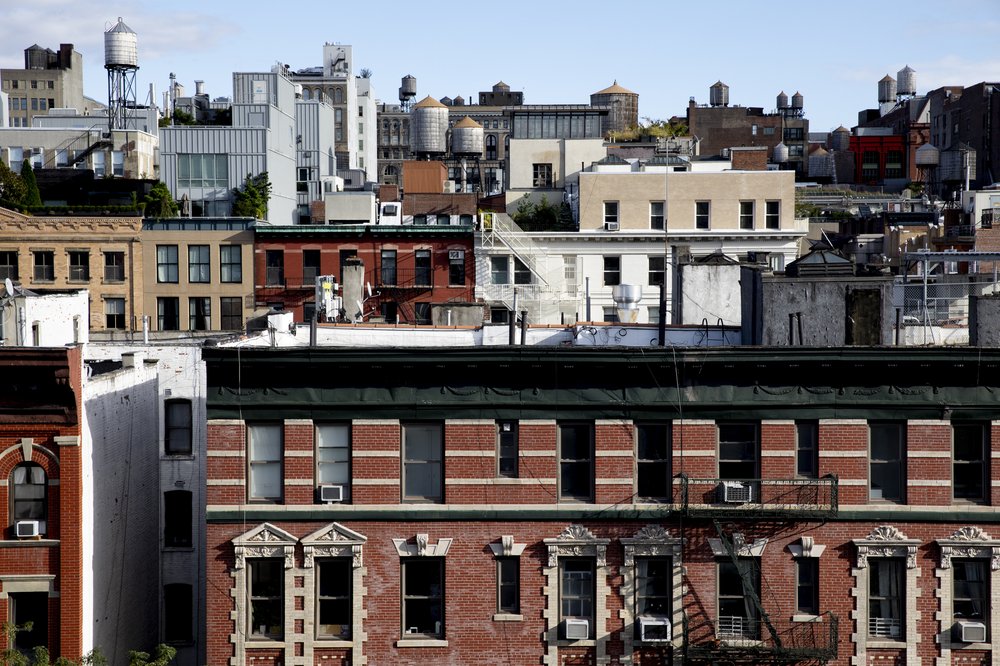US Supreme Court rejects challenge to NY’s rent stabilization laws, but two cases linger
Oct. 2, 2023, 11:35 a.m.
Landlord groups are trying to topple New York's rent stabilization system, which caps legal yearly rent increases on roughly 1 million apartments in New York City.

The U.S. Supreme Court is refusing to consider a challenge to New York’s rent stabilization laws that could have ended a cap on rent increases for a million apartments citywide. But two similar cases are still awaiting a decision by the justices.
The court declined to consider the case, which was filed by a pair of influential landlord groups, after a series of appellate judges dismissed a lawsuit filed by the Community Housing Improvement Program and Rent Stabilization Association -- groups that represent owners of rent-regulated apartments. The two groups say the current rent regulations unconstitutionally limit their ability to earn profits and invest in their buildings.
Two other sets of landlords are also trying to appeal similar cases to the U.S. Supreme Court, which has not yet weighed in on their applications.
In a statement Monday, CHIP Executive Director Jay Martin said the stronger rent regulations are stripping landlords of the income they need to maintain their buildings and fueling foreclosures.
“While we were hopeful a broad facial challenge would have delivered the most relief to the most owners as quickly as possible, we remain convinced that the law is irrational and vulnerable to more specific challenges,” Martin said. “One way or another this law must go down, its current form is destroying New York's housing.”
But tenants, their advocates and local lawmakers say eliminating the laws that prevent exorbitant rent increases and establish a right to a lease renewal could expose hundreds of thousands of families to rent hikes and worsen the city’s already record-high homelessness crisis.
Legal Aid Housing Attorney Ellen Davidson said she was relieved by the court’s decision to reject the case from CHIP and RSA, but is keeping her eye on the other two pending challenges.
“We’re pleased with the denial of the case and we’re watching to see what could happen with the others,” Davidson said. “It would be devastating for more than a million households, and it would be devastating to the economy of New York to have that much disruption.”
New York’s current rent stabilization system, first enacted in 1969, limits increases on hundreds of thousands of apartments, mostly in buildings with six or more units built before 1974. But for years, landlords managed to legally lift units out of regulation — allowing them to charge anything they want once monthly rents reached a certain threshold. Prior to a series of reforms in 2019, property owners could increase the rent by 20% on vacant apartments and hike prices based on the cost of renovations.
In 2019, New York lawmakers sharply limited the tools available to landlords of stabilized apartments who wanted to raise rents, by largely prohibiting many prior practices — like increases on empty units— through a sweeping legislative package that prompted the cases before the Supreme Court.
Landlord groups sued to overturn the 2019 rent laws, and the state’s rent regulation system overall, immediately after passage.
A series of federal judges dismissed their claims, leading to the final appeal to the nation’s highest court, which has previously, and unanimously, upheld rent stabilization laws.
But the landlord groups pointed to a more recent Supreme Court decision known as Cedar Point Nursery v. Hassid to justify their claims. In that case, the court reversed the right of labor union representatives to visit privately-owned farmlands. The court majority said those visits were an unconstitutional “taking” — the government controlling what companies or individuals can do with their property.
Martin said his organization will continue pushing for legislative changes that allow owners to raise rents on vacant rent-stabilized apartments.
“However, if lawmakers continue to defund housing and attack the rights of owners to earn a living providing homes through policy, we will be left with no choice but to continue challenges at all levels of the judicial system,” he said.
Federal court upholds NY rent stabilization laws, setting up possible Supreme Court showdown